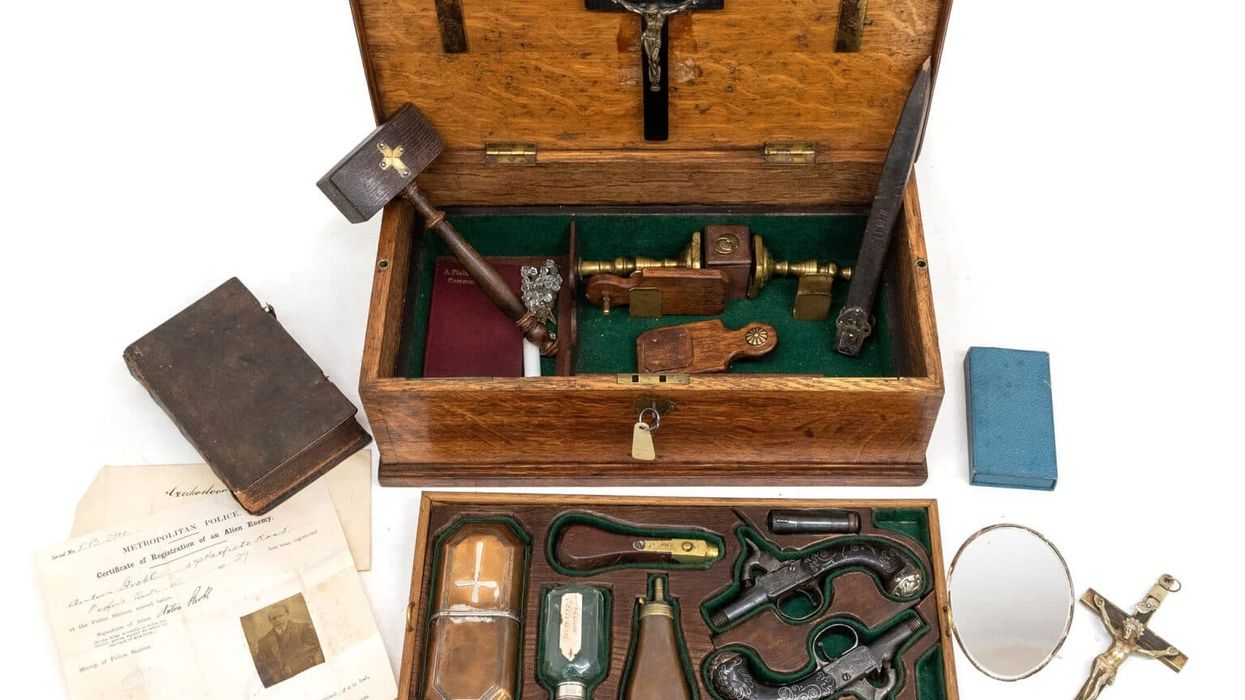A vampire-slaying kit which looks like something straight out of a vampire movie has sparked an international bidding war before being sold for six times its estimated price, Hansons Auctioneers in the UK told CNN.
While the spooky item attracted bidders from around the world including countries like France, the United States and Canada, an anonymous bidder from the UK is reported to have won the auction. The late 19th-century box kit was sold on Thursday, 30 June, for $15,736.49
The antique kit is supposed to include all that is essential to ward off the blood sucking vampires of yore. Therefore, according to Hanson Auctioneers, the items in the box include crucifixes, holy water, a wooden stake and mallet, rosary beads, a Gothic Bible, brass candlesticks, matching pistols and a brass powder flash.
Charles Hanson, owner of the auction house is quoted as saying, "The task of killing a vampire was extremely serious and historical accounts suggested the need for particular methods and tools.
"Items of religious significance, such as crucifixes and Bibles, were said to repel these monsters, hence their presence in the kit."
The vampire-slaying kit belonged to British aristocrat Lord William Malcolm Hailey (1872-1969) who was also a former administrator of British India, stated a news release.
Speaking about why such an item was purchased Hanson is reported to have said, "Whether through fear or fascination, it's interesting to know a member of the highest aristocratic social order, a man with a place in the House of Lords, acquired this item.
“It reminds us that the vampire myth affects people from all walks of life."
Backing this notion, Hansons Auctioneers said, “Belief in vampires, an undead creature said to need human blood to survive, goes back hundreds of years and persists in some parts of the world today."












